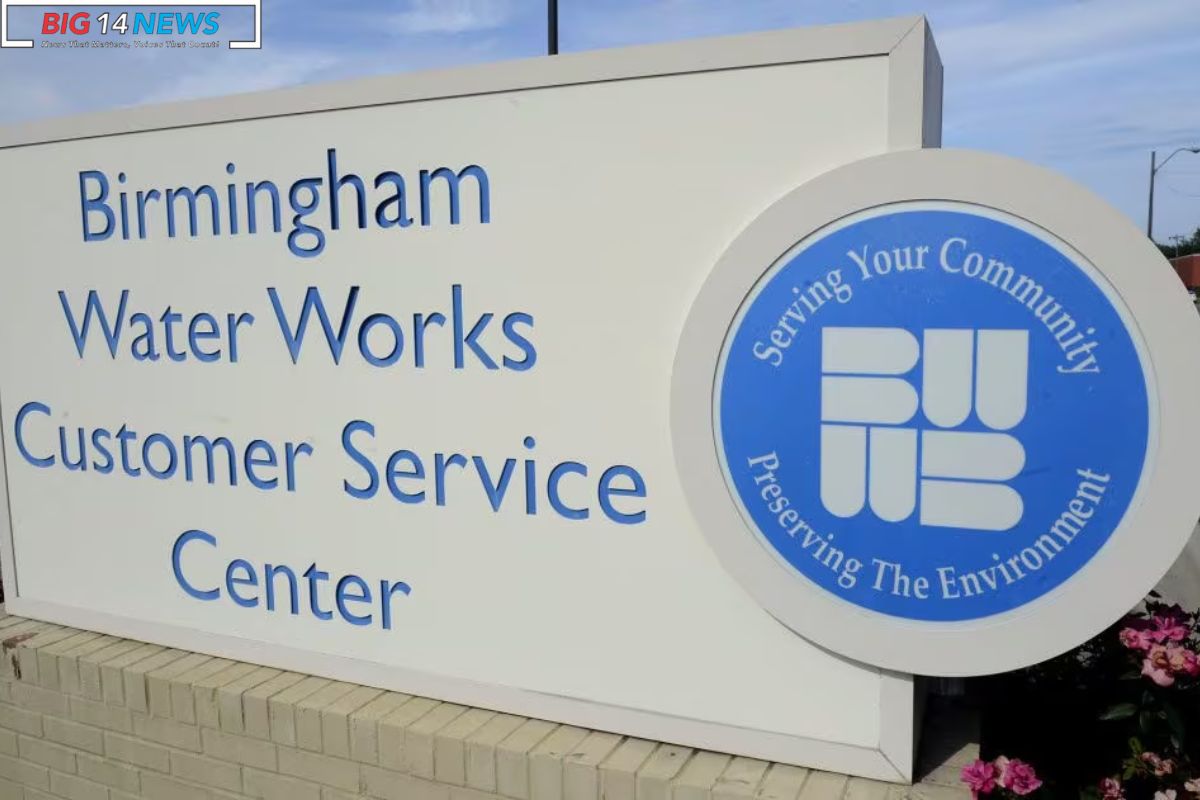The Birmingham Water Works Board Legal Battle: In the ongoing legal battle over open records, the Birmingham Water Works Board finds itself entangled in controversy and public scrutiny. As the Board Chair responds to the allegations and pledges transparency, questions arise surrounding public access to invoices and the broader issue of information rights.
This article delves into the dispute, examining board policies, leadership roles, and potential changes that may impact the future of transparency within the organization.
Key Takeaways
- Allegations of violating open records law and a lawsuit filed against the Birmingham Water Works Board by George Munchus highlight the controversy surrounding the board’s transparency and access to information.
- The refusal of George Munchus, a board member, to sign a pledge requiring training on ethics and procedures has sparked public criticism and a debate among stakeholders, raising concerns about violation of trust, accountability, and potential conflicts of interest.
- Munchus advocates for unrestricted public access to invoices, emphasizing the importance of government transparency and accountability. He dismisses the controversy surrounding the pledge and focuses on ensuring transparency and accountability in government operations.
- The broader context reveals a lack of consensus within the board, with discussions about potentially restructuring water utility leadership. The election of a new chair and the desire for improved public perception further contribute to the ongoing legal battle and the need for transparency.
Dispute and Lawsuit at Birmingham Water Works Board
Amidst allegations of violating open records law, the Birmingham Water Works Board finds itself embroiled in a legal battle over the dispute with veteran member George Munchus. Munchus has filed a lawsuit against the board, accusing them of withholding detailed legal expenses in violation of open records law.
The dispute centers around Munchus’s request for monthly invoices from 2015 to 2023. However, the general manager, Michael Johnson, denied access to the invoices, citing a policy that only allows a summary to be viewed by the public.
This disagreement has escalated into a full-fledged legal battle, pitting Munchus against the board. The outcome of this dispute will not only determine the transparency of the board’s financial practices but also the adherence to open records law in the Birmingham Water Works Board.

ALSO READ: Birmingham Water Works Employees Concerns with Issue Vote of No Confidence
Board Chair’s Response and Pledge Controversy
Following the lawsuit, the board chair, Tereshia Huffman, publicly criticized Munchus for his refusal to sign a pledge adopted by the board earlier in the year. The pledge, which is part of a broader policy, requires members to undergo training on ethics and procedures. Huffman’s criticism stems from the belief that by not signing the pledge, Munchus has forfeited certain rights, such as committee participation and leadership roles.
This controversy has sparked a heated debate among the stakeholders of the Birmingham Water Works Board. Emotions are running high, and here are four reasons why this issue has become so contentious:
- Violation of trust: The refusal to sign the pledge raises concerns about Munchus’s commitment to ethical conduct and transparency.
- Question of accountability: By opting out of the training, Munchus may be seen as avoiding scrutiny and oversight.
- Potential conflict of interest: The lack of commitment to the pledge raises questions about Munchus’s ability to prioritize the interests of the board and the public.
- Implications for the board’s reputation: This controversy threatens to tarnish the reputation of the Birmingham Water Works Board, leading to a loss of public trust and credibility.
Munchus’s Stand on Public Access to Invoices
Munchus advocates for unrestricted public access to invoices as a crucial aspect of government transparency and accountability. He firmly believes that these documents, which are paid with public money, should be readily accessible to all citizens. Munchus argues that denying public access to invoices only serves to conceal potential misuse of funds and hinder proper oversight. He dismisses the controversy surrounding the pledge as a diversion from the core issue at hand.
While Huffman suggests that Munchus can sign the pledge if he desires, Munchus maintains that the focus should be on ensuring transparency and accountability in government operations. By advocating for public access to invoices, Munchus aims to empower citizens and foster a culture of openness and trust in the government.

The Issue Regarding Transparency and Public Information Rights
The ongoing legal battle surrounding the Birmingham Water Works Board’s open records has sparked concerns about the transparency and public information rights surrounding the issue. As citizens, we have a right to access information that affects us, and transparency is crucial for holding public entities accountable.
The lack of transparency in this case raises several important questions:
- Are public institutions withholding information that could potentially expose wrongdoing or mismanagement?
- How can we ensure that our tax dollars are being used appropriately if we are not provided with detailed information?
- Should public entities have the power to limit access to certain records, potentially hiding information that should be available to the public?
- What are the long-term consequences of restricting public information rights? Could it lead to a culture of secrecy and diminished accountability?
These concerns highlight the importance of transparency and the need for public information rights to be upheld.
The Broader Context: Board Policies, Leadership Roles and Potential Changes
Within the broader context of the ongoing legal battle surrounding the Birmingham Water Works Board’s open records, it is important to analyze the board’s policies, leadership roles, and potential changes in order to gain a comprehensive understanding of the situation.
The board’s adoption of a policy and pledge in April highlights their commitment to ethical conduct, positive representation, and adherence to parliamentary procedures. However, the fact that two board members, Munchus and Blankenship, voted against the measure suggests a lack of consensus within the board.
Furthermore, the election of Huffman as chair in January 2023, and her expressed disappointment over the lawsuit, indicates a desire for improved public perception. The tension within the board also reflects broader discussions about potentially restructuring water utility leadership, which could involve replacing current board members with new appointees.
Such potential changes could have significant implications for the future governance and transparency of the Birmingham Water Works Board.

Conclusion Of The Birmingham Water Works Board Legal Battle
the legal battle over open records at the Birmingham Water Works Board has highlighted the importance of transparency and public access to information.
The dispute, along with the controversy surrounding the board chair’s response and pledge, has raised concerns about the board’s policies and leadership roles.
It remains to be seen if this issue will lead to potential changes in the board’s practices and a greater commitment to transparency.
Our Reader’s Queries
Who owns Birmingham Water Works Board?
The Birmingham Water Works Board, a public corporation empowered by Title 11 of the Alabama State Code, oversees the Birmingham Water Works utility.
What is the history of the Birmingham Water Works?
May 13, 1873 marked the historic day when water cascaded from the reservoir into the heart of downtown. The Elyton Land Company took it a step further in 1885 by establishing the Birmingham Water Works Company as a standalone entity, entrusting the city’s water system to this new corporation. Birmingham’s explosive expansion led to its endearing nickname, The Magic City.
Who is the general manager of the Birmingham Water Works?
Michael Johnson, as the General Manager of the Birmingham Water Works Board, oversees the provision of services to more than 600,000 customers across five counties.
How do I contact Birmingham Water Works?
For assistance with payment options, contact Customer Service at (205) 244-4000. Birmingham Water Works customers who meet income and situational eligibility requirements may qualify for assistance through the Help to Others (H20) Foundation, a nonprofit organization independent of Birmingham Water Works.

